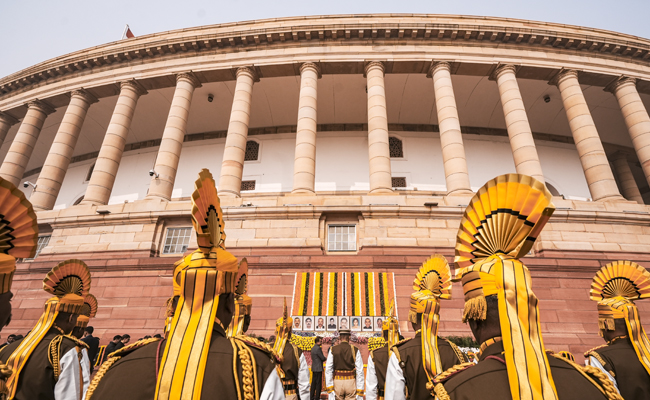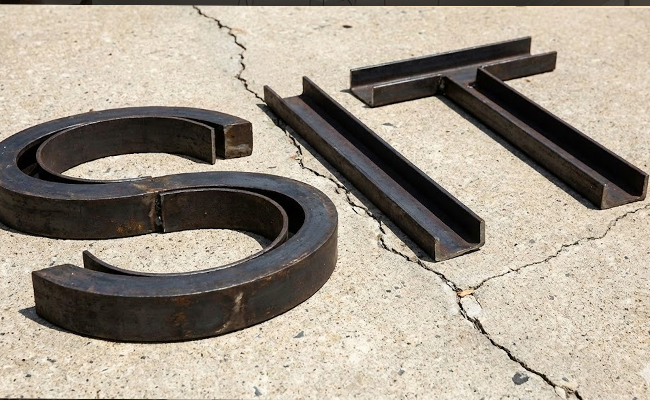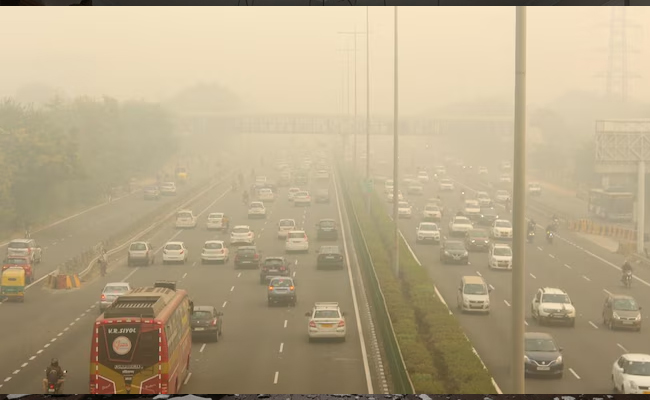Bengaluru, Jun 20: Karnataka cabinet on Thursday gave its approval to a Union government proposal on continuation of mining activities on 13 tailing dumps attached to Bharat Gold Mines Limited in Kolar district, while seeking the transfer of 2,330 acres of the defunct company for its proposed industrial township there.
Briefing reporters after a cabinet meeting, Law and Parliamentary Affairs Minister H K Patil said: "as a special permission of the state government is required as per the MMDR act, the cabinet has granted its approval."
"The cabinet has given its approval for the central government's proposal to continue the mining activities in 13 tailing dumps area of 1,003.4 acre, at the inactive Bharat Gold Mines Limited's (BGML) mining area at KGF in Kolar district, under MMDR (Mines and Minerals (Regulation and Development) Amendment) act's section 17," he said.
If mining activities are started using these tailing dumps, naturally it will generate jobs, Patil said, pointing out that the state government has already asked the Centre for 2,330 acre land in the area for establishing an industrial township there.
ALSO READ: Building collapse in Kodagu injures several; rescue operations underway
Further noting that BGML, till 2022-23, had to pay Rs 75,24,88,025 as arrears to Karnataka, he said: "we will be requesting the Government of India to pay, or else, as we have asked them for the land, they may ask us to consider the amount for the land in kind -- like exchange."
Meanwhile, the cabinet authorised Chief Minister Siddaramaiah to decide on the dates for holding the monsoon session of the state legislature. "It is likely to be for two weeks," the Minister said.
The government has also mandated the placing portraits of B R Ambedkar along with Mahatma Gandhi during celebration of Constitution Day, Independence Day and Republic Day.
"During the celebration of Constitution Day, Independence Day and Republic Days, Mahatma Gandhi's portrait is usually placed, from hereon B R Ambedkar's portrait should also be compulsorily placed. It will be in all places where celebrations are held," Patil said.
Other cabinet decisions include administrative approval for the construction of a new outpatient block at the K R Hospital campus in Mysuru at an estimated cost of Rs 75 crore, free power and water facilities to all 46,829 government schools and 1,234 PU colleges at an estimated cost of Rs 29.19 crore, and Rs 2.37 crore for implementation of personality development programme for students at residential schools under social welfare development department in association with Rotary International-Bengaluru.
The cabinet has also given its consent to take the help of women self help groups in recovery of property tax and water bill dues in different urban local bodies of the state. The property tax dues are to the tune of Rs 1,860.17 crore, the Minister said.
It was also decided to give in principle approval for declaring 33 units of the Directorate of Civil Rights Enforcement in the state as "special police stations", and they will get the status of police stations in dealing with SC/ST atrocities cases.
Stating that the purpose of this is to reduce the workload of police stations, the Minister said discussions were also held regarding approval of 450 posts for managing and working these stations.
The cabinet has authorised the Chief Minister to form a sub-committee regarding issues faced by the Universities in the state, including staff shortage.
"When the cabinet discussed giving Rs 279 crore for six universities, concerns were raised about vacancies in old established universities of the state, and also regarding salary and pension issues there, along development and technology import. The cabinet has requested the Chief Minister to constitute a cabinet sub-committee to find solutions for them," he said.
Approval was also given for 7,110 km of rural roads at an estimated cost of Rs 5,190 crore, under the 'Pragati Path' scheme with external assistance.
Let the Truth be known. If you read VB and like VB, please be a VB Supporter and Help us deliver the Truth to one and all.
New Delh (PTI) The Congress on Saturday said it is perhaps not very surprising that India is not part of a US-led strategic initiative to build a secure silicon supply chain, given the "sharp downturn" in the Trump-Modi ties, and asserted that it would have been to "our advantage if we had been part of this group".
Congress general secretary in charge of communications Jairam Ramesh took a swipe at Prime Minister Narendra Modi, saying the news of India not being part of the group comes after the PM had enthusiastically posted on social media about a telephone call with his "once-upon-a-time good friend and a recipient of many hugs in Ahmedabad, Houston, and Washington DC".
In a lengthy post on X, Ramesh said, "According to some news reports, the US has excluded India from a nine-nation initiative it has launched to reduce Chinese control on high-tech supply chains. The agreement is called Pax Silica, clearly as a counter to Pax Sinica. The nations included (for the moment at least) are the US, Japan, the Republic of Korea, Singapore, the Netherlands, the United Kingdom, Israel, the United Arab Emirates, and Australia."
"Given the sharp downturn in the Trump-Modi ties since May 10th, 2025, it is perhaps not very surprising that India has not been included. Undoubtedly, it would have been to our advantage if we had been part of this group."
"This news comes a day after the PM had enthusiastically posted on his telephone call with his once-upon-a-time good friend and a recipient of many hugs in Ahmedabad, Houston, and Washington DC," the Congress leader asserted.
The new US-led strategic initiative, rooted in deep cooperation with trusted allies, has been launched to build a secure and innovation-driven silicon supply chain.
According to the US State Department, the initiative called 'Pax Silica' aims to reduce coercive dependencies, protect the materials and capabilities foundational to artificial intelligence (AI), and ensure aligned nations can develop and deploy transformative technologies at scale.
The initiative includes Japan, South Korea, Singapore, the Netherlands, the United Kingdom, Israel, the United Arab Emirates, and Australia. With the exception of India, all other QUAD countries -- Japan, Australia and the US -- are part of the new initiative.
New Delhi will host the India-AI Impact Summit 2026 on February 19-20, focusing on the principles of 'People, Planet, and Progress'. The summit, announced by Prime Minister Narendra Modi at the France AI Action Summit, will be the first-ever global AI summit hosted in the Global South.
Prime Minister Modi and US President Trump on Thursday discussed ways to sustain momentum in the bilateral economic partnership in a phone conversation amid signs of the two sides inching closer to firming up a much-awaited trade deal.
The phone call between the two leaders came on a day Indian and American negotiators concluded two-day talks on the proposed bilateral trade agreement that is expected to provide relief to India from the Trump administration's whopping 50 per cent tariffs on Indian goods.
In a social media post, Modi had described the conversation as "warm and engaging".
"We reviewed the progress in our bilateral relations and discussed regional and international developments. India and the US will continue to work together for global peace, stability and prosperity," Modi had said without making any reference to trade ties.





